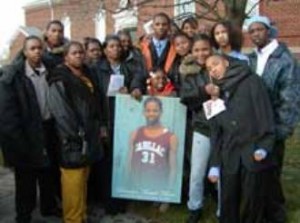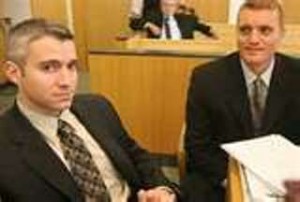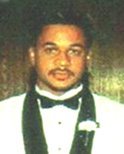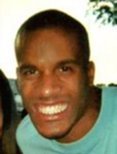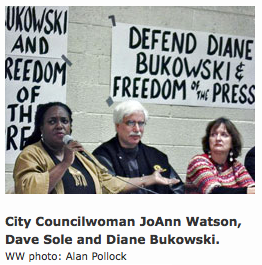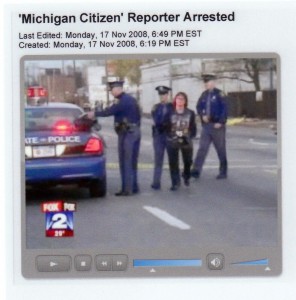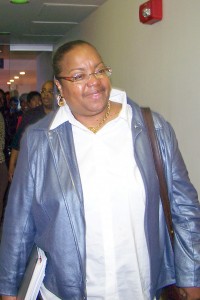A WOMAN AGAINST THE SYSTEM
BY GARY YOUNGE, published in The Nation and by Agence Globale
December 19, 2008
(Nov. 17, 2010 – This article is being re-published due to a recent attack on Bukowski related to her conviction in this case.)
On election day James Willingham, 42, was driving home from the polls in Detroit around 3:30 pm on his motorcycle when he was allegedly hit by a police car with such force that he struck and killed a pedestrian, Jeffrey Frazier, and then crashed into a pole and died from the impact.
When Diane Bukowski, a white journalist for the black newspaper Michigan Citizen, heard the news on a black radio station, she rushed to the scene on the corner of Justine and East Davison. The first print reporter to arrive, she showed her credentials and started taking photographs. A female state trooper yelled at her from across the street, “Who the fuck do you think you are?” Bukowski again identified herself as a journalist. “I didn’t cross any police tape,” says Bukowski. “I was just doing my job.” The trooper grabbed the camera, deleted the photos, handcuffed Bukowski, arrested her on a single misdemeanor count of obstructing an investigation and took her to state police headquarters, where she was held for about an hour.
And so it was that as the polls were closing in Michigan and the nation began to bask in the warm glow of a post-racial society, a white woman was cuffed and fingerprinted because she tried to tell the world about two black men who had just been killed.
For all the dreamy talk of the journey we are on to transcend race, only a handful like Bukowski are actually paying for the ticket. Not just because she’s a white woman who works for a black newspaper and got arrested, or because the victims she was writing about were black, but because she is a white person who is prepared to take on the mess that white supremacy has built.
Detroit
Extinguishing race as a meaningful category demands that we first get rid of the racism that gives it meaning. In that respect, the symbolic resonance of election night in Chicago — joyous as it was — can be understood only within the systemic neglect and harassment of that fateful afternoon in Detroit. The two scenes do not contradict but complement each other. A black man in the White House seemed so unlikely precisely because a black man in prison or dead at the hands of the police is so much more likely. What individuals do in the privacy of the polling booth pleasantly surprised some of us; but the outrageous things institutions do in plain sight no longer turn heads. Race describes the protagonists; power shapes the narrative.
“I’m happy that Barack Obama got elected,” says Arnold Reed, Bukowski’s attorney. “It’s a start. But he’s not the savior. He’s not standing on the corner of Justine and Davison. The battle that transcends race in this country is between those who have and those who have not. Diane’s reports have given a voice to those who have not.”
Bukowski cuts an intriguing figure. An insatiable gum-chewer, she strides through the roughest areas of black Detroit in single-minded pursuit of her stories. She is 60 years old and stands at around 5 feet 4 inches. A few days after her arrest, her charge was ramped up to five felony counts of assaulting, wounding, battering, resisting, obstructing or endangering five troopers, carrying up to ten years in prison. The idea of this small woman single-handedly battering five armed troopers would be funny if it weren’t so absurd. The charges were reduced to two troopers following a preliminary exam.
The police claim they didn’t hit Willingham. They say the accident on election day occurred when Willingham raced away from them on a stolen motorcycle after they tried to pull him over for speeding.
Given a choice between their account and Bukowski’s, I know which one I would believe. She reported on the murder of Brandon Martell Moore for the Michigan Citizen. Brandon, 16, was shot in the back by an off-duty cop as he left a mall. Brandon had never been in trouble with the law before. But the cop who shot him had. In 1971 Eugene Williams, who is black, was involved in a fatal hit-and-run accident while under the influence of alcohol. In 1979 Williams shot and killed a 31-year-old man during a neighborhood brawl. Five years later he shot his wife, but she lived. Williams stayed on the force. The senseless death of a black teenager at the hand of a wayward cop is clearly not a newsworthy story in Detroit. The city’s two main newspapers needed less than 200 words to write up the whole story in which they failed even to mention Brandon’s name and quoted only the police.
Were it not for Bukowski, who pursued the case relentlessly, Brandon would have died without a trace. Thanks to her reporting, the community demanded answers.
So there is a reason the Detroit police don’t like Bukowski. She refuses to let them do their job the way they see fit. During her years at the Citizen she has broken several stories, including one about the “Booty Boys” — police on Detroit’s Southwest side were conducting illegal cavity searches of black men in public on city streets. She also broke the story of Eugene Brown, a cop who ran amok in black areas during the ’90s. Her work was used by federal authorities when they imposed a consent decree on Detroit police. Nonetheless, all these police officers, most of whom are black, remain on the force. “This is clearly an attempt to intimidate me,” says Bukowski of her arrest. “They are trying to cover up what happened.” Without her, they would get away with murder, literally.
At Detroit’s 36th District court, where Bukowski’s preliminary exam was heard, almost everyone is black — the public defenders, judges, security guards, defendants, cashiers, stenographers, ushers. Once the system is up and running, the race of those who operate it is as secondary as the race of those who fight it.
Gary Younge, the Alfred Knobler Journalism Fellow at The Nation Institute, is the New York correspondent for the Guardian and the author of No Place Like Home: A Black Briton’s Journey Through the Deep South (Mississippi) and Stranger in a Strange Land: Travels in the Disunited States
Released: 19 December 2008
Word Count: 987
—————-
Rights & Permissions Contact: Agence Global, rights@agenceglobal.com 1.336.686.9002, or 1.212.731.0757



